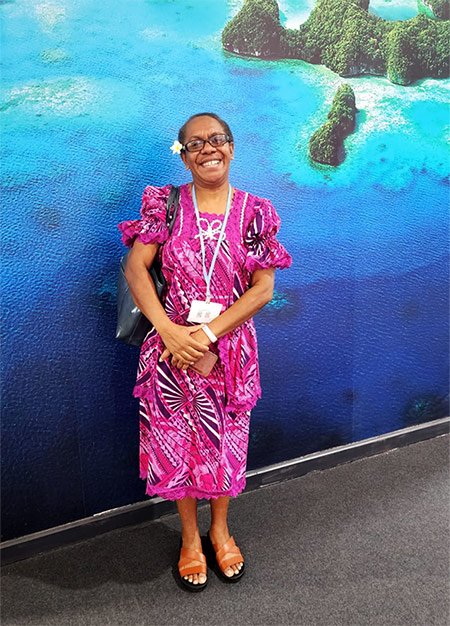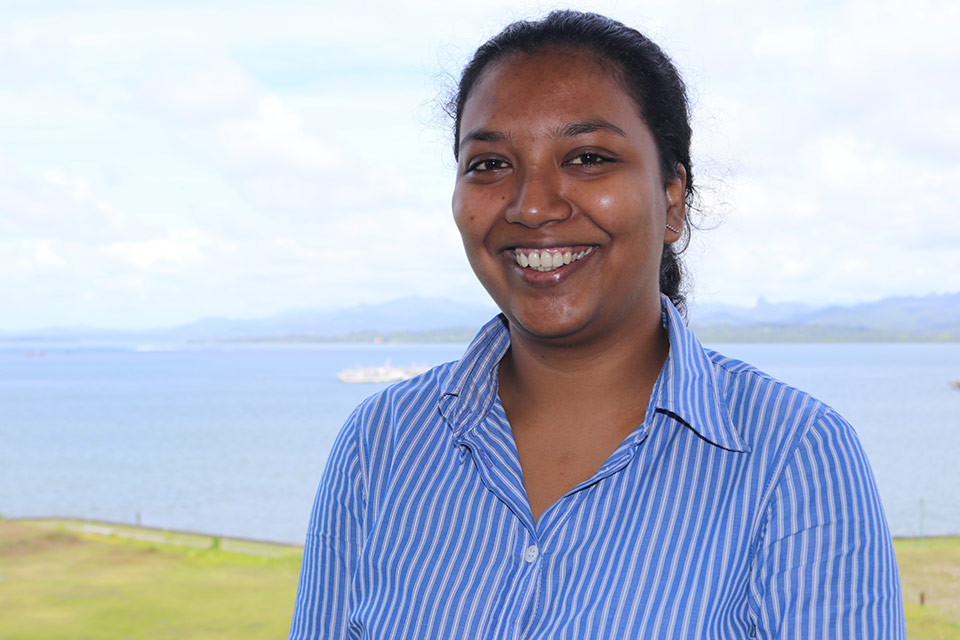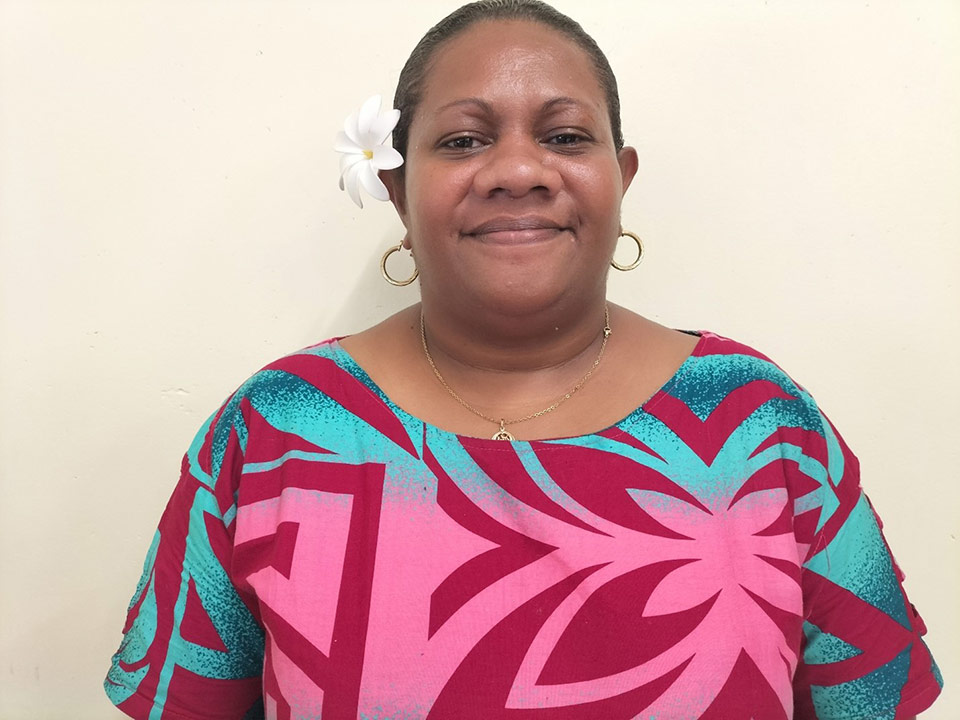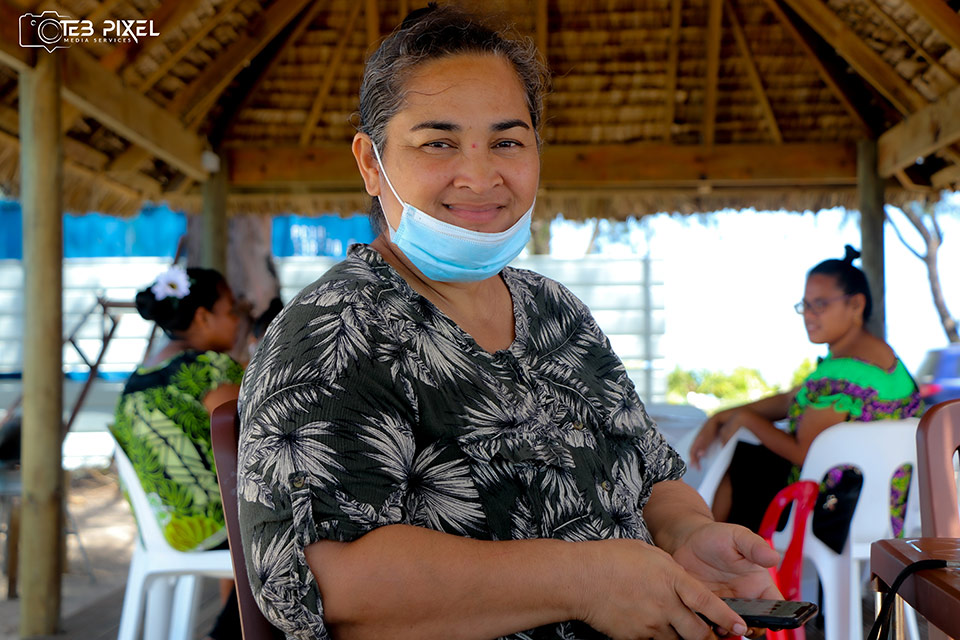Beyond COP27: Pacific Women Leaders on why women and girls must be included in climate solutions
We spoke to four Pacific Women Leaders, delegates to the recent global United Nations climate change negotiations and advocates in their communities, about the impact of climate change on women and girls in the region, and why it matters so much that their experiences shape climate action.
Pacific Women Leaders are a powerful force for change in the climate action arena. They are on the frontlines, finding food and safety amidst cyclones, ensuring their families survive climate-related disasters. They are listening to their communities about what they need as sea levels rise too close to their homes. They are standing behind podiums and calling for world leaders to take inclusive climate action, ensuring the experiences of women and girls in the Pacific are heard on the global stage.
Today, and every day, we celebrate the Pacific women standing up for people and for the planet. Their voices are crucial contributors to conversations about climate change. We spoke to four Pacific Women Leaders, delegates to the recent global United Nations climate change negotiations and advocates in their communities, about the impact of climate change on women and girls in the region, and why it matters so much that their experiences shape climate action.
Women and girls bear the impact of climate change disproportionately
Existing inequalities and harmful social norms set women and girls up to struggle when climate-related emergencies strike. They are expected to continue caring for their families amidst crises, but experience barriers in accessing the care they may urgently need themselves.

Rothina Ilo Noka, Director of Women’s Affairs in Vanuatu, shared how climate-related emergencies can increase the risk of violence for women and girls, “A major crisis like a cyclone, volcanic eruption or a health pandemic can intensify the workloads of women and girls as they are expected to continue providing and caring for their families during difficult circumstances. This can have significant implications on health, safety and wellbeing of women and girls. In some cases, the susceptibility of women and girls to violence can be heightened during and after emergencies.”
"The lives of women and girls are impacted deeply by disasters, both at home and beyond, in the immediate aftermath and in the weeks and months that follow. In rural and coastal communities, women often find income in harvesting and selling food to their communities and further afield. These are jobs that are disrupted when floods destroy fields, or markets are torn apart by vicious winds."

Namisha Nikita, Mitigation Officer at the Climate Change and International Cooperation Division in Fiji, said she had seen women and girls lose their livelihoods and access to education when cyclones devastate their communities.
“Due to damaged infrastructure, people’s livelihood (especially women’s) comes to a halt as they can’t perform their home bound duties. They are unable to sell at roadside stall, their drinking water is contaminated, farms are destroyed, and they are also unable to send their kids to school,” said Namisha.
Climate action must be more inclusive of women and girls

Pauliane Basil, Senior Scientific Adaption and Disaster Risk Management Officer at the Ministry of Climate Change in Vanuatu, called for inclusive climate action at COP27.
“Pacific women, in particular those with disabilities, must gain access to climate services and information. We must advocate for equal rights widely”.
- Pauliane Basil, Senior Scientific Adaption and Disaster Risk Management Officer.
"Not only do women and girls miss out when they are not included in climate solutions, but their communities do too. When it comes to supporting recovery in the wake of climate-related disasters, women and girls know what their communities need, when they need it, and who is best positioned to provide it. That is why it is crucial that loss and damage conversations place women and girls in all their diversity at the centre."
Takena Redfern, National Disaster Risk Management Officer from the Office of the President in Kiribati, is advocating for loss and damage funds that are inclusive and fair.

“This finance mechanism must be gender responsive, fair, and equally distributed... Global leaders should know that building the resilience of women and girls is like building the resilience of the society or nation”.
- Takena Redfern, National Disaster Risk Management Officer.
This story was first published on UN Women Asia and the Pacific regional page.
Takena (Kiribati), Pauliane (Vanuatu), and Namisha (Fiji), were supported to attend COP27 via the Women's Resilience to Disasters (WRD) Project which is supported by the Australian Government and implemented in the Pacific by UN Women. Rothina (Vanuatu) was at COP27 through the Pacific Partnership to Ending Violence Against Women and Girls (Pacific Partnership) Programme which is supported primarily by the European Union with targeted support from the Governments of Australia and New Zealand and UN Women.